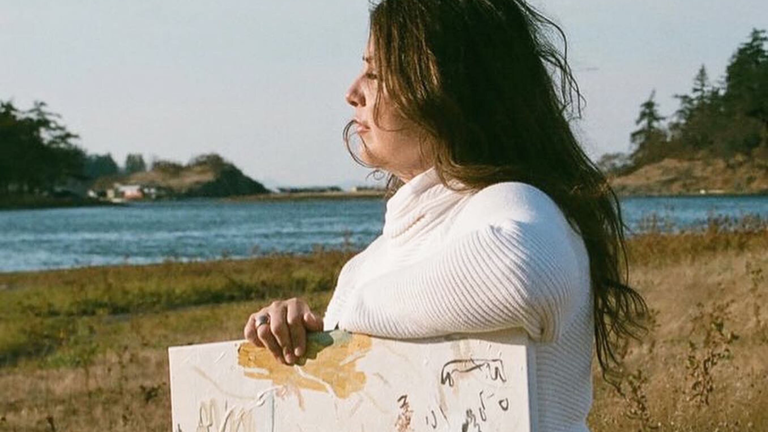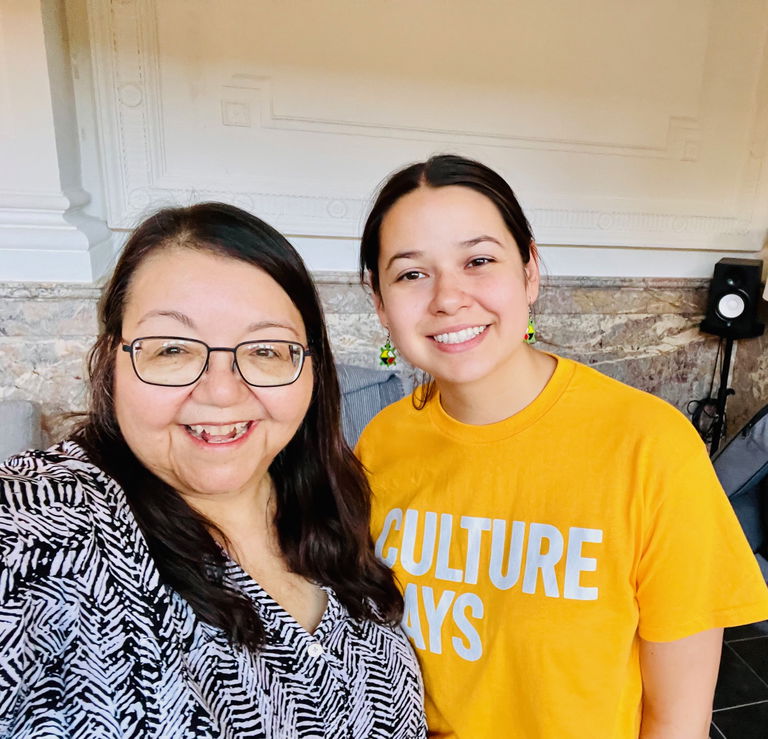
Poems From the Kitchen: Building Community Through Culinary Storytelling
Elena Massing
Sep 4, 2024
Poems From the Kitchen: Building Community Through Culinary Storytelling
When you switch on a cooking show or read a recipe, you may notice something interesting: in addition to listing steps and ingredients, people will often bring up stories related to the dish—how they learned to make it, why it’s important to them. Whether it’s a conscious decision or not, the line between chef and storyteller blurs as they delve into histories and heritage, bridging the gaps between cultures through the power of food.
During this year’s Culture Days, poet Johnny D Trinh wants to unpack this phenomenon: how can communicating through food help us better understand the world around us?
Trinh currently serves as the artistic director at Vancouver Poetry House and the interim executive director at Historic Joy Kogawa House. They also recently wrapped up an artist residency at the Moberly Arts and Cultural Centre, with colleague, food and eco artist, Pierre Leichner.
Trinh holds a BA in Drama, Diploma in Music Theatre, and MFA in Interdisciplinary Studies: Theatre & Creative Technology. They have always been interested in how theatre engages community, and how communities tell their stories, but during their time as a recent grad in the 90's, the theatre and film world didn't offer much in the way of opportunities or roles that reflected Trinh's experience, so they turned to a more community-engaged art practice. It was also during their studies that a colleague introduced them to Spoken Word. Looking back, they realized they'd been writing poetry their entire life. As they immersed themself into that world—citing poet Beau Sia as one of his earliest inspirations—they finally felt represented and included.

They decided to write a play in spoken word style, and performed a segment of it at a poetry slam. It was well-received, and the positive feedback sparked their desire to compete in even more poetry slams. Within a year, they did their first equity theatre show, A Man A Fish by Donna Michelle St. Bernard and directed by Phillip Adams, and qualified to compete at the annual championships, Canadian Festival of Spoken Word—they recall closing the show at Saskatoon’s Persephone Theatre then hopping on a Montreal-bound plane for nationals.
According to Trinh, a special aspect of spoken word is its sense of immediacy.
“That's what I love the most about it. It's accessible in the sense that if someone has a story to tell, they can tell the story.”
In poetry, people are often at their most vulnerable, so they’re encouraged to take those feelings and run with them. Reading out a poem is still a performance, but compared to similar art forms, there isn’t as much pressure on the artist to create a completely perfect and polished piece. Being raw and honest will draw an audience in regardless of how you choose to convey it.
“The ephemerality of it—this moment that passes, but in that connection point you've had with someone, that memory stays with you. Much like a meal. This meal will be completed and eaten, but you'll remember it and it gives you something.”
Food has always held emotional significance for Trinh. Growing up, their mother’s side of the family owned a restaurant in Vietnam, where food wasn’t just sustenance—it defined a whole lifestyle.

They started to more closely analyze the role of food in people’s well-being while doing their degree in creative technology. Moving to a smaller city like Regina from their home province of Ontario had filled their life with change, and learning about cuisines that they knew and loved made everything feel a little less isolating.
“I was really interested in how we present ourselves online, and different versions of ourselves that we present on different platforms. Cooking videos were really intriguing to me,” Trinh said. “I was always more interested in not just the skill of what you're teaching someone to make, but more about ... what was revealed about the person when they were talking about that dish.”
During their grad studies, Trinh started what they jokingly described as a “very, very low-budget” series called Poets From the Kitchen. They’d invite an artist over, do a cooking lesson, then take some time to share art and create with them. In 2018, they hosted a live version of the series during their time as a BC Culture Days ambassador.
Trinh brought up a dish involving steamed fish from their Chinese background—their parents weren’t always able to get the type of fish it required, but they usually had access to salmon. It inspired the idea to explore an ingredient indigenous to the area prepared in an Asian style and the significance of this overlap.

“It was my very early exploration of this idea around how we form identity, how we build community, and the interplay of cultures,” Trinh said.
Now Trinh, along with BC Culture Days, Kickstart Disability Arts and Culture, Community Arts Council of Vancouver (CACV), and Vancouver Poetry House (where Trinh is the current Artistic Director), is expanding the concept into a series called Poems From the Kitchen, which will be held at the Moberly Arts and Cultural Centre this fall as part of the centre’s “Intercultural Happenings” hub.
Like the initial event, each segment of the series will feature a chef specializing in a certain area, like navigating disability in the kitchen or exploring a specific cultural background and its cuisine. Each culinary lesson will have a poet presenting work that meshes with the themes of the workshop — Trinh likes to think of it, “like a wine pairing, but food and poetry.”

Food becomes especially significant for people raised in immigrant households, who grow up in a country where they aren’t surrounded by the language or traditions that are supposedly their own. Sometimes food becomes the only way to feel a sense of connection to their heritage.
“Oftentimes folks from racialized communities talk about being children of immigrants or coming from far away and bringing food here to find identity, to connect with their roots,” Trinh said.
“What does that mean, to bring in so many things that are not indigenous to this place and this land? What does it also mean when, as we age and grow and we have challenges with family or connection? How do we cultivate and nurture ourselves and understand ourselves more through the food that comes from the kitchen?
Poems from the Kitchen this October is one way to find out—register for workshops in the Poems From the Kitchen series through the Culture Days website.
Also as part of this year’s Culture Days, Trinh and the Historic Joy Kogawa House are hosting a Warp and Weft chapbook launch event, where attendees can celebrate the chapbook’s release and learn about binding books by hand.
Johnny D Trinh is the artistic director at Vancouver Poetry House and the interim executive director at Historic Joy Kogawa House. They were a BC Culture Days ambassador in 2018, and are organizing this year’s Poems From the Kitchen workshops at the Moberly Arts and Cultural Centre.
Elena Massing is a third-year student at the University of British Columbia. She is the former Marketing and Communications Assistant for BC Culture Days.




